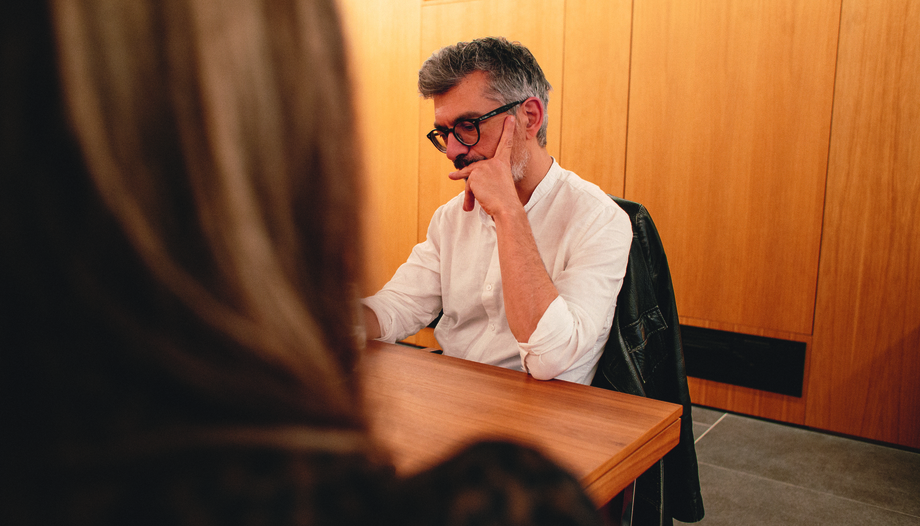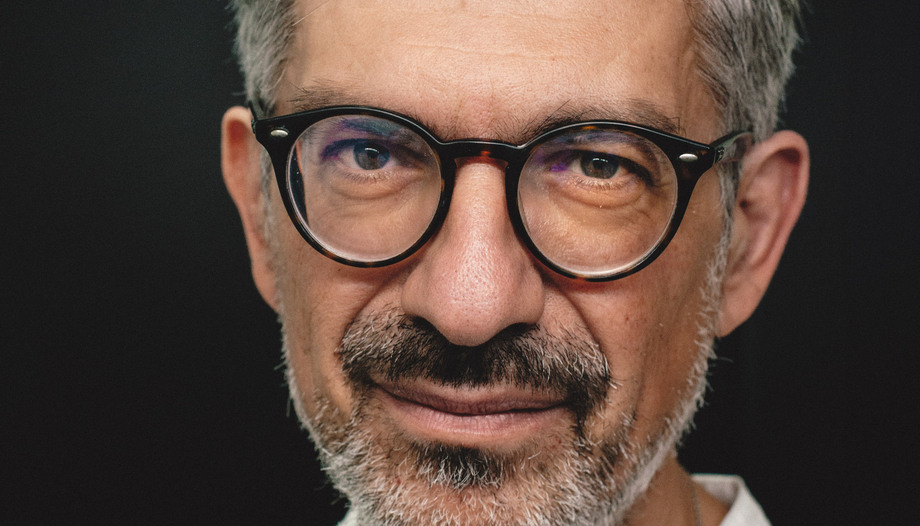Conversation with Fabrice Hadjadj (Nanterre, 1971) is to enter into a challenging dynamic of thought. Considered one of the leading Catholic philosophers of our time, this Frenchman, of Jewish origin, converted after a youth completely distanced from Christianity and, today, is one of the most influential Catholic voices of our time.
Hadjadj Omnes shortly before the start of the Omnes Forum in which he spoke about the central theme of his latest book published by Encuentro Wolves disguised as lambs, in which, with a disruptive perspective, he addresses the sin of abuse in the Church - not of minors or only of a sexual nature - but the abuses that have resulted from a specific "mystique" that supported this type of practice.
In fact, Hadjadj approaches this subject from the awareness of being, himself, a sinner and from the conviction that the abuser whom he despises is also a neighbor and a recipient of Christ's salvation. The only complete victim, he emphasizes HadjadjThe key to Christianity is that "it is not only interested in the victims, but also in sinners".
In "Wolves disguised as lambs", he poses a controversial question: how to judge if we all have the possibility of falling. Is there an excess of judgment, within Catholics themselves, and a shortage of mercy?
-We have a tendency in a certain Christian rhetoric to oppose judgment and mercy, but I would like to remind you that judgment is the proper act of intelligence, and therefore all judgment cannot be abandoned in the name of mercy.
My book contains a certain number of judgments. What is at stake is not in saying "Who am I to judge?", as some do, and thereby removing themselves from that responsibility.
There are abuses that objectively must be denounced. Obviously I cannot judge about the condemnation of the person who has committed these abuses. But what is properly Christian is the fact that the light that makes me see evil, also turns towards me, and makes me see my own evil.
St. Augustine in the tenth book of the Confessions distinguishes between the veritas lucens and the veritas red arguens; that is, the truth that enlightens and the truth that accuses. And it is seen as St. Augustine accuses himself and seeks to know his own sin. Therefore, these abuses are an occasion to be more attentive to ourselves.
It does not mean renouncing judgment, one must judge the facts objectively, but when it comes to people, it is my responsibility that comes first.

You claim that perhaps we have lost the "biblical story", which proves that God builds on foundations of garbage. Doesn't it seem to you that the reality of abuse is too bad for God to build anything?
-I am not here to give prescriptions. The Christian mystery is always dramatic. When a father entrusts his children with a mission, the children can abuse this trust and this generosity that they receive. Love is therefore not that which prevents drama. If I love no one, I am not vulnerable. If I love nothing and no one, I can live with dead objects and not with free people who can betray me.
Many times we think that "love is a solution". But the Bible makes it clear that love is an adventure. And this love story, which is the story of God with men, is the story of the possibility of numerous betrayals.
To try to abolish the possibility of abuse is also to abolish a love story. This is what our society does, for example, by abolishing adultery. Where there is no more adultery, there is no more possible marriage, marriage is the condition of adultery. And by abolishing marriage, adultery is also abolished. That's why I can't give a recipe, it's a dramatic story.
¿How to sympathize - taking the second part of your book - with someone who has committed this crime, harming others, himself and the Church?
-I am not a pastor. Abuse committed by priests has to be handled by pastors. It is a very complicated task, very difficult, because you have to take into account the victims, but you cannot fall into the victimizing religion. Because Christianity is not only interested in the victims, but also in the sinners. And a pastor must also be concerned about his sinful priests.
Sometimes I see in some bishops a media management that enters into the logic of victimization, and a forgetfulness of closeness with priests and with the faithful. Because, what do we do with an abuser priest? Evidently he must be put at the disposal of the civil justice, but if the facts are prescribed, what are we going to do? Do we lock him up in a religious community? Life in religious communities is difficult enough. It is not their vocation to welcome priests who have committed abuse.
There is a real pastoral difficulty. There will always be the possibility of abuses in the Church. The only thing I wanted to contribute is to say that the Bible already speaks of these abuses and these abuses confirm the truth of revelation.
For example, in the book of Judges, in the Old Testament, we see people who receive a mission to save the people in order to put away idolatry. And then they become proud of their power and they themselves fall into idolatry. It is also the story of the fall of the devil. They become "drunk" on the beauty that God gives them. These stories are also our stories, on another level. And so I, what I wanted to call for was vigilance in my own life.
To be a Christian is to ask myself what I am doing to be a true witness of Christ. And not to say to the other "be a witness of Christ" and remain calm.
The second part of the book talks about the difference between the judgment of the "gut" and the heart. The former has no patience or transcendence while the heart reaches intrinsic evil. Which one prevails today?
-That is a distinction of George Bernanos. Our society is what Bernanos calls the tripe. That is, immediate emotionality. And what is very interesting is that this immediate emotionality is also closely linked to the functioning of social networks. I click on a button and I see a drama..., and I look for the button to delete the drama. I am exposed to horrors over which I have no incidence and I ask a machine to solve the problem.
There is what we can call a culture -although it is more of a anti-culture-that permanently pushes us to immediacy. The whole computer system is destined to improve the instantaneousness of results and, therefore, to always remain on the surface, in a kind of overexcitement. And we lose what is the patience of the heart, the depth of the heart, the analytical capacity of the heart.
We are in a world of false compassion, which starts with a very emotional compassion but which immediately seeks what we call final solutions. It is this immediate step from compassion to extermination. This applies, of course, to the questions of abortion and euthanasia; but it also applies to the question of the war in Ukraine or what is happening in Israel.
When one discovers in European societies the renewal of anti-Semitism in an unimaginable way, it is precisely because we are locked into this world. technocompassional where we see images of the Gaza Strip destroyed, of suffering, and then we ask ourselves, "where is the button to eliminate the Jews?". And we don't understand the complexity of the situation. A world of guts, of drives, and the drive is at the same time, the immediate emotionality, but also the finger that rests on the button of extermination.







